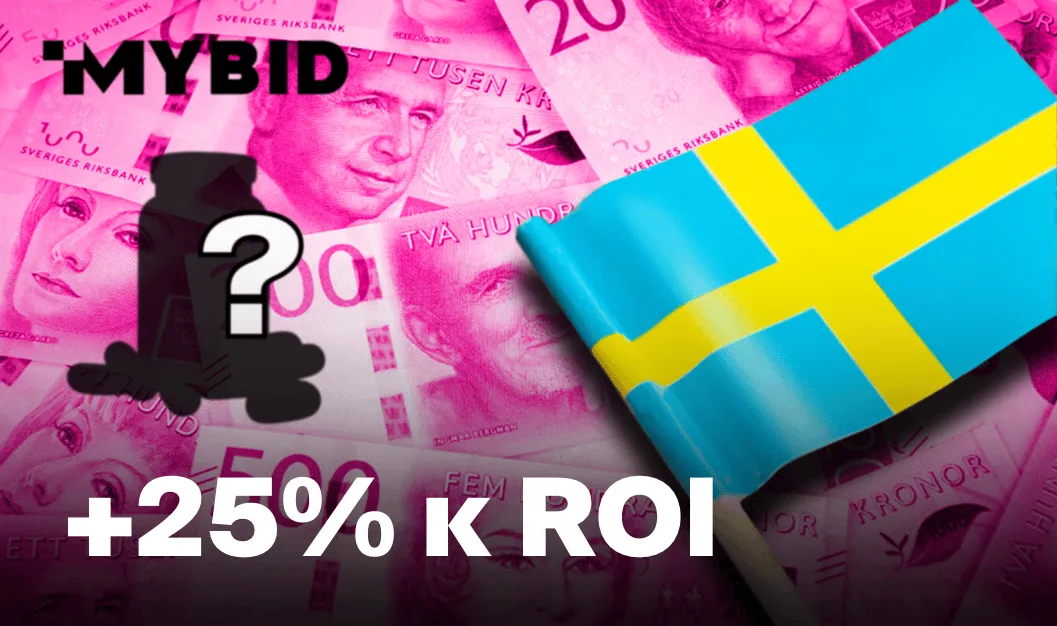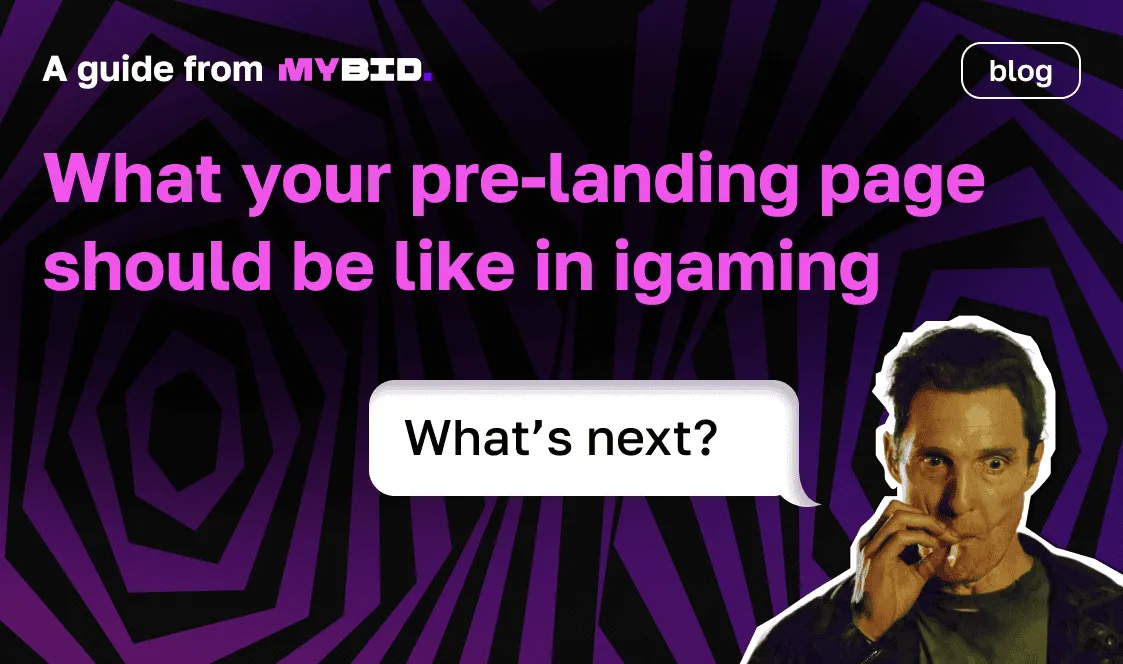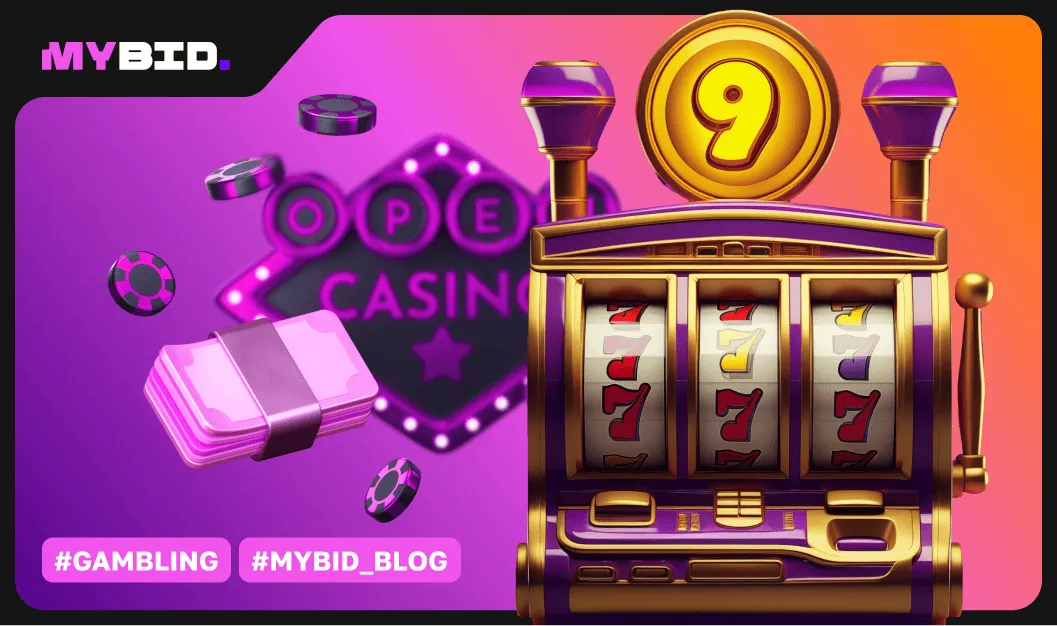Affiliate marketing isn't just about promoting grayhat stuff like male enhancement pills or adult dating offers as many people think. There are actually legitimate whitehat verticals of affiliate marketing, and one of them is e-commerce. In e-commerce affiliate marketing, affiliates promote different products that you can buy online. This can include things like clothing, household items, car products, and much more. So, if you're interested in learning about the ins and outs of e-commerce affiliate marketing and how to work with the offers, you should read this article.
What is the e-commerce vertical in affiliate marketing?
The e-commerce vertical is a specific category where marketers promote physical goods. This can include a wide range of products like clothes (such as T-shirts, leggings, and sneakers), household items (like decorative lights and kitchen tools), car products (for example, a dashboard camera), and many other types of offers.
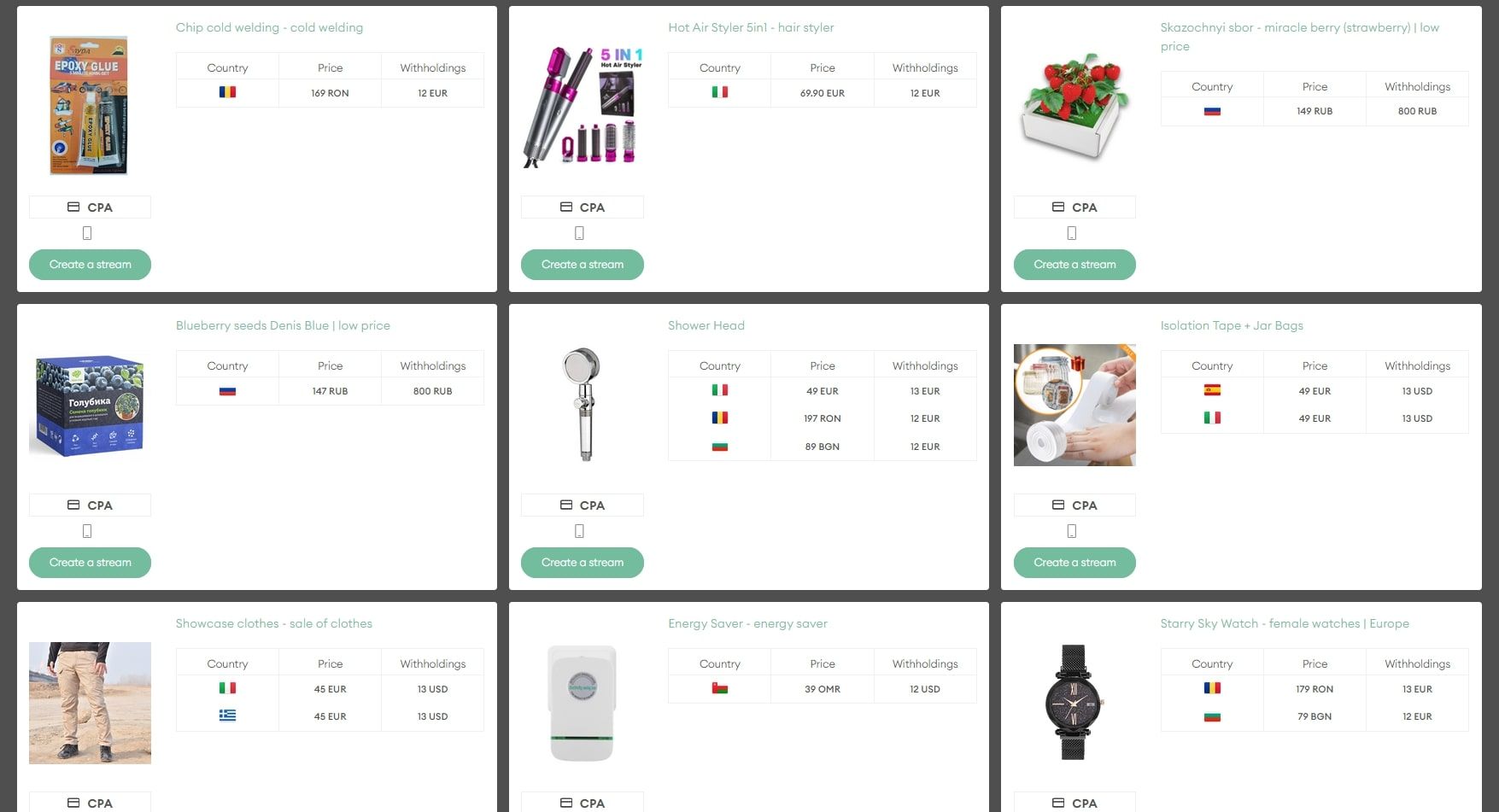
E-commerce is referred to as "whitehat" because it involves ethical practices. Affiliates in e-commerce don't deceive or mislead anyone, and they don't use questionable methods to promote products. If they promise that a glowing garland will be delivered, you can trust that you will indeed receive a glowing garland.
However, in other areas like the crypto vertical, things can be different. In promotional materials for cryptocurrencies, affiliates may use creative storytelling, such as claiming that Elon Musk created his own cryptocurrency, even though it's obvious that he didn't actually create one.
The difference between whitehat e-commerce offers, grayhat and blackhat ones
When you work with whitehat e-commerce offers, there is no intention to deceive or trick anyone. The methods used to promote these offers are usually ethical. For example, you can easily advertise e-commerce offers on platforms like Facebook without resorting to fraudulent practices or trying to deceive moderation or platform algorithms. There is no need for such tactics because these product offers typically comply with all the rules, as long as you don't make impossible promises or use unauthorized media personalities in your advertisements. You can also make payments for such advertising with a single card, simplifying the process.
In contrast, working with grayhat verticals involves a different approach. Affiliates in these verticals often attempt to deceive moderation or algorithms, bypass rules, and make offers that are prohibited by the platform's guidelines. As a result, various resources like accounts, cards, and applications are frequently banned. The creative elements and landing pages in grayhat offers deliberately mislead or outright deceive people. For example, they might promise users that they can get rich by betting on sports or in a casino. In the case of nutra offers, these creatives might guarantee unrealistic results in treating health issues with ordinary dietary supplements. Legally, there may be clear boundaries, but morally, there are concerns, and not everyone is willing to compromise their principles.
Blackhat verticals are even more extreme. Pure fraud is prevalent in this area, starting from the creative elements and extending to the actual offer itself. The approach and tools used in blackhat verticals highlight the nature of this unethical practice, such as farming accounts and linking multiple cards. For example, a person might pay money but receive nothing in return, not even a cheaper product. Moreover, blackhat product offers are often promoted using equally unethical methods. All of this falls under criminal liability, and only the most desperate individuals engage in such activities. We strongly advise against adopting this approach.
E-commerce offers are not always whitehat
Even though the e-commerce vertical is referred to as "whitehat," there are also grayhat offers within this space. Unfortunately, there are dishonest advertisers who may send poor-quality goods or something completely different from what a person ordered. Throughout the history of affiliate marketing, there have been several stories involving such situations. For example, instead of receiving a Makita screwdriver, some advertiser sent a package filled with sand, or instead of a proper hunting suit, they might send a poorly sewn and shapeless item that can hardly be called a suit at all.
Therefore, if you want to promote genuine whitehat products in this vertical and work using ethical methods without facing issues like blocking, requiring multiple resources, or dealing with problems related to payment cards and moderation, it's crucial to carefully choose the offer and the advertiser. The products should be of good quality, just as they are described in the promotional materials. Otherwise, it will be no different from promoting "grayhat" products that fall into categories like adult content or gambling.
To assess the quality of an offer, there are a couple of options. You can focus on a specific product offer and gather feedback from users who have already purchased it. Another option is to consult with affiliates who have previous experience working with that particular offer. Alternatively, you can take the ultimate approach and order the goods yourself to personally evaluate their quality.
Additionally, a personal manager at the MyBid advertising network can provide guidance on the suitable type of traffic for the chosen offer. The personal manager assists each affiliate throughout the entire advertising campaign, offering support at every stage.
Pros and cons of promoting e-commerce affiliate offers
Just like any other affiliate marketing vertical, e-commerce has its own advantages and disadvantages. Here are the main pros and cons of working with e-commerce offers:
Pros:
- You don't need to worry about stuff like many payment cards or additional tools, making it easier to work with e-commerce offers.
- The entry barrier is lower compared to other verticals, as you don't have to invest in expensive software or resources.
- There is great potential for scaling your business and reaching a wider audience.
- The experience gained in e-commerce can be valuable for transitioning to other whitehat niches or even starting your own online store.
- You have a wide variety of offers, traffic sources, and approaches to choose from.
- You can promote products and services without worries, knowing that you're offering legitimate items.
Building long-term campaigns is possible in the e-commerce industry.
Cons:
- Finding the right offers to promote can be challenging, as you need to focus on marketing strategies rather than just technical aspects.
- The competition in the e-commerce space can be intense, making it harder to stand out.
- Profit margins are lower compared to other verticals, as obtaining traffic for whitehat offers tends to be more expensive.
- Some e-commerce offers may be similar to grayhat or blackhat practices, blurring the lines of ethical marketing.
- Pre-launch preparation for promoting e-commerce offers can be more time-consuming and demanding.
Traffic sources for e-commerce offers
When it comes to promoting e-commerce offers, there are several ways to get traffic to your products. The most important thing is to be able to target your specific audience effectively. However, some offers may appeal to a broad audience. Here are the main sources of traffic:
- Marketplaces: Right now, marketplaces are the most popular place to promote e-commerce offers. It's a platform where buyers can easily pay for goods using their credit cards. You can find product offers through affiliate programs or buy them directly from well-known markets like AliExpress, and others. Buying directly is more common.
- TikTok: You can create short videos showcasing your offers in a TikTok-style format and advertise them through TikTok Ads. Sometimes, these videos are even narrated by computer-generated voices. While the quality of these voiceovers may not be great, they still work well in all geos. If you want to make the videos more effective, it's better to invest in professional voice acting, even though it requires more effort.
- Social media advertising: Platforms like Facebook Ads are great for targeting your e-commerce offers to specific audiences. As long as your offers comply with the platform's rules, you can advertise without worrying about getting banned or dealing with payment issues. You won't need to deal with things like credit cards, proxies, or special tools.
There are two ways to promote whitehat products through social media:
- Directly link your ads to the landing page of your offer.
- Create a group, add your offers to it, and run ads on behalf of the group.
Both methods work well, but they have their own pros and cons. The first method requires less effort but limits your creative options, while the second method offers more flexibility. You can also make money from the group itself, create a marketplace, or try out other creative advertising approaches.
- Advertising networks: If you're looking for a lot of cheap traffic without the need to constantly provide new credit card details, advertising networks are a good option. They work best for product offers that target a wide audience. One example is MyBid, an advertising network that offers six different formats to suit your needs. We offer affordable traffic to different regions, including Asia, Latin America, Europe, and North America. What sets MyBid apart is that our managers take care of the campaign setup, editing, and optimization, so you just need to provide the offer link and your targeting preferences. The managers can also help you choose the right ad creatives.
- Google Ads: Google Ads is a source of contextual advertising that works similarly to targeted advertising. You can promote your offers directly through banners or videos, or create your own website and attract search traffic.
- SEO: SEO involves creating a website where you rank and review the best household products. You can provide links to the product offers on your site. It's important to include positive customer reviews about the offers and specify that payment can be made by credit card or cash on delivery.
Case studies for promoting e-commerce affiliate offers
To understand how people are successfully promoting e-commerce affiliate offers, we have a few real-life examples to share.
Making $750 per month by promoting a mascara product on TikTok
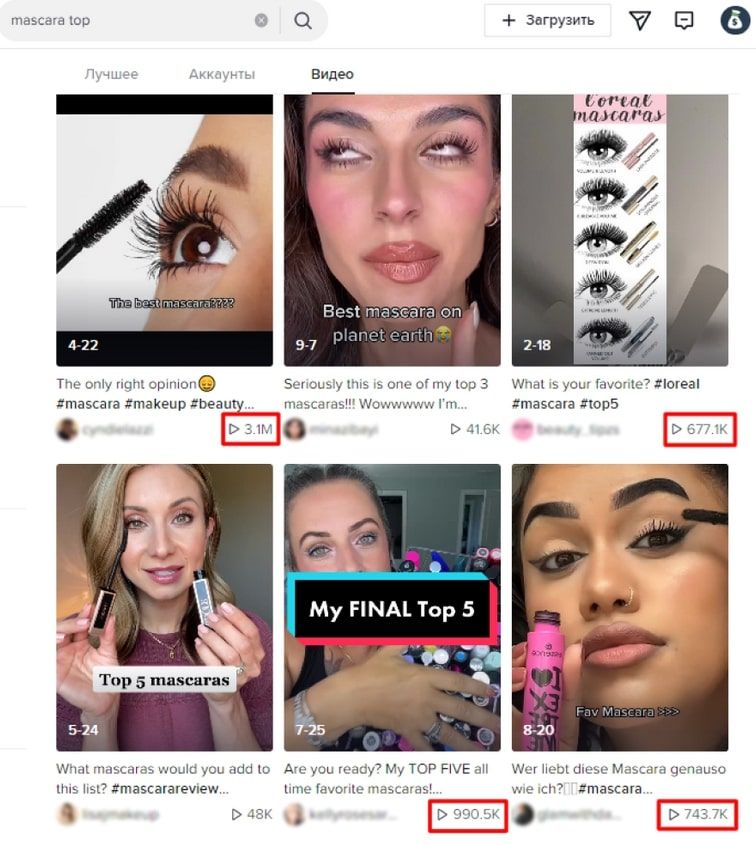
In this case study, an affiliate marketer focused on promoting a mascara product. He spent $50 on different tools and resources like purchasing a subscription for InShot Pro, creating video ads on VideoHive, and hiring voiceover artists on Fiverr. He tried two approaches: showing how to apply mascara correctly and naming/ announcing a list of the best mascaras.
Earning $14,100 in just two weeks by promoting boots on Google

Another case study is about an affiliate marketer who made over $14,000 by promoting an e-commerce offer on Google while targeting the Kazakhstan geo. He was promoting boots using a dropshipping model. The cost of the boots themselves was $2,870. The total expenses added up to $6,780, which included $2,970 for getting traffic, $630 for credit card services, $2,470 for packaging and shipping, and $710 for other expenses like commissions and returns.
Making $1,000 per month with the Amazon affiliate program
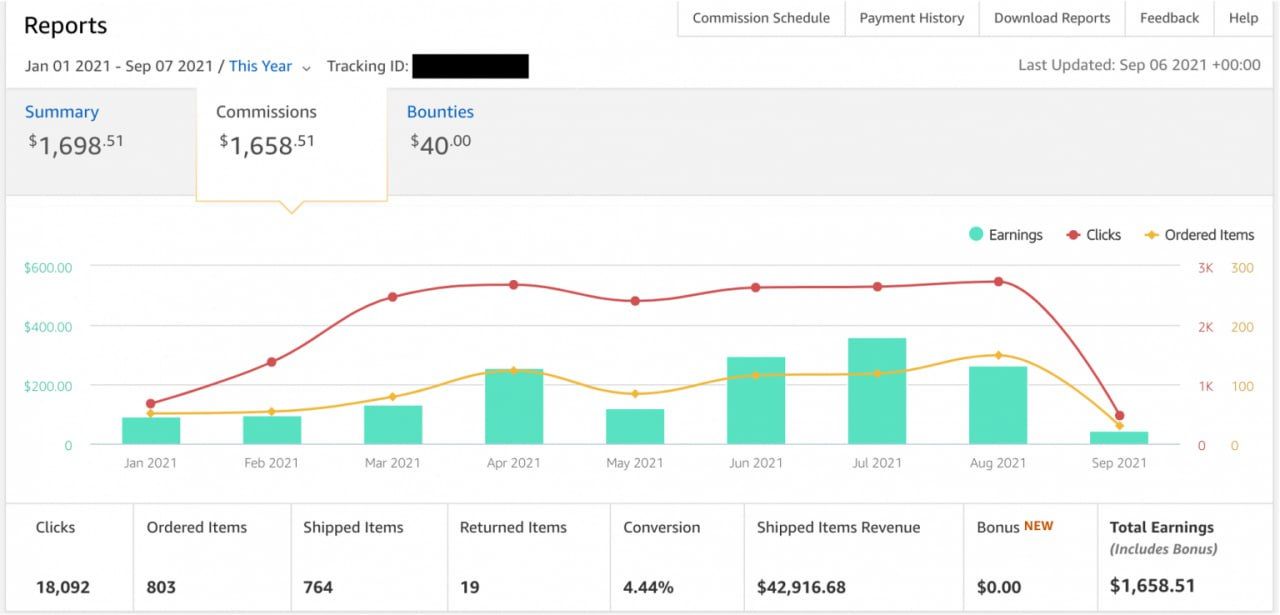
This case study focuses on how affiliates worked with the Amazon affiliate program without resorting to grayhat tactics like buying cards. Initially, their goal was to earn $10,000 per month, but by the time the case study was written, they were making $1,000. They estimate that the website cost them between $35,000 and $40,000 to set up.
The website was launched in July 2020, and by August 2020, they had finished creating 100 articles that promoted several e-commerce offers from 3 different affiliate programs.
At first, the affiliates signed up for 3 affiliate programs, but two of them didn't generate enough income, so they stopped working with them. Instead, they started focusing on the Amazon affiliate program.
In one week, they made $1,658 in commissions through Amazon. The affiliates were happy with this result.
Verified e-commerce affiliate networks
When it comes to e-commerce, there are two sub-categories as addressed earlier in this article: whitehat and grayhat. Whitehat is the conventional and ethical approach, where users receive the promised quality of products on the landing page. Grayhat, on the other hand, may not deliver what was promised.
Choosing an affiliate network depends on your goals. If you want to promote high-quality products, search for e-commerce affiliate programs. Simply search for "e-commerce affiliate networks." If you're open to promoting average-quality goods and dealing with resources like bank cards, look for affiliate networks with "grayhat products."
Here are some reliable options for both categories.
Whitehat e-commerce affiliate networks
These are regular affiliate networks in the e-commerce vertical that collaborate with product brands, online stores, and various services. Most often, you'll earn a percentage of the sale as your commission.
ePN
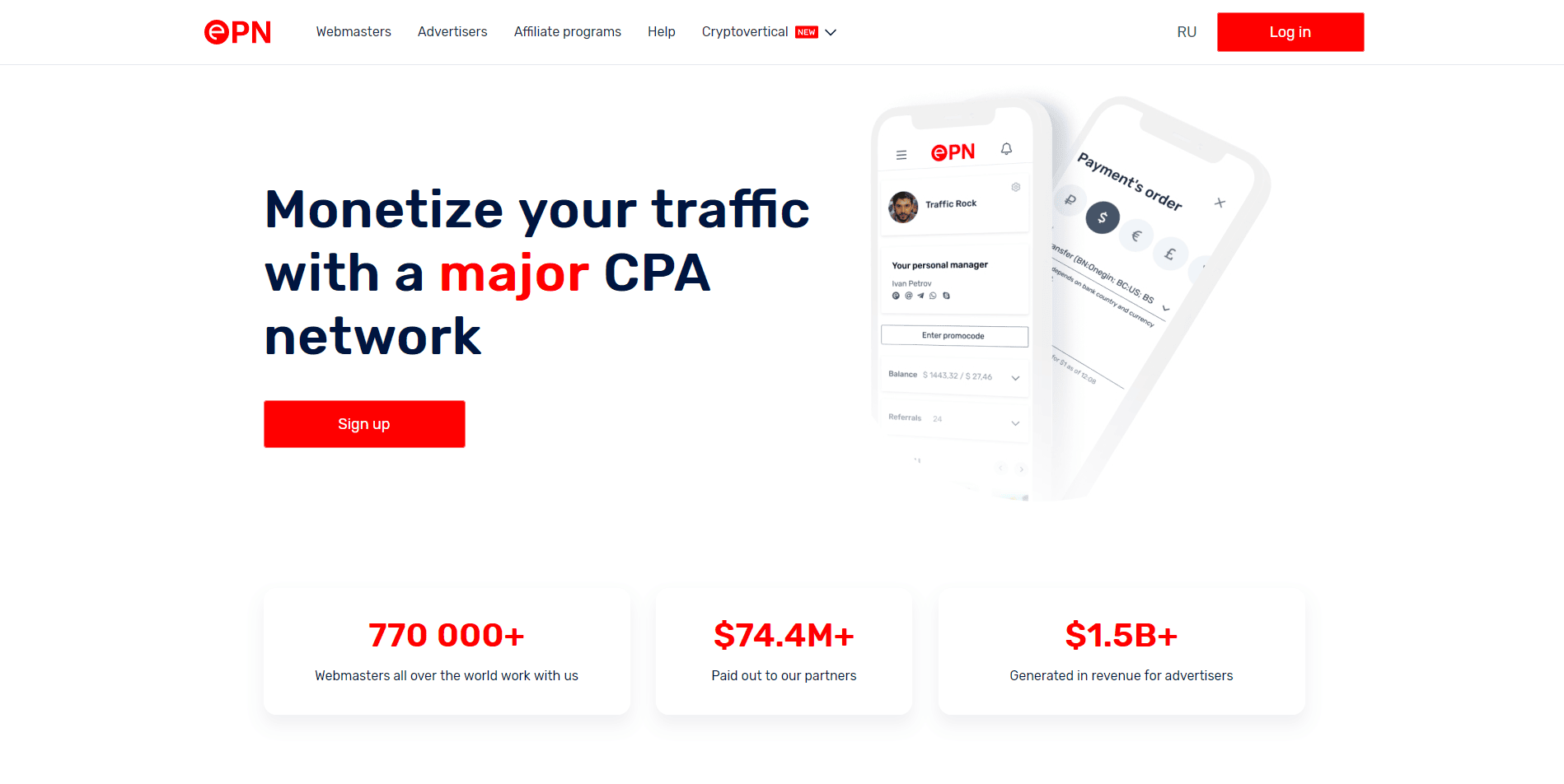
This is one of the top affiliate networks in the whitehat category, known for its partnership with AliExpress. They work with other marketplaces too and operate worldwide.
ePN offers its own link shortener to make links more appealing and allows you to create promotional codes with discounts. As an affiliate, you'll earn a percentage of the purchase amount.
Admitad
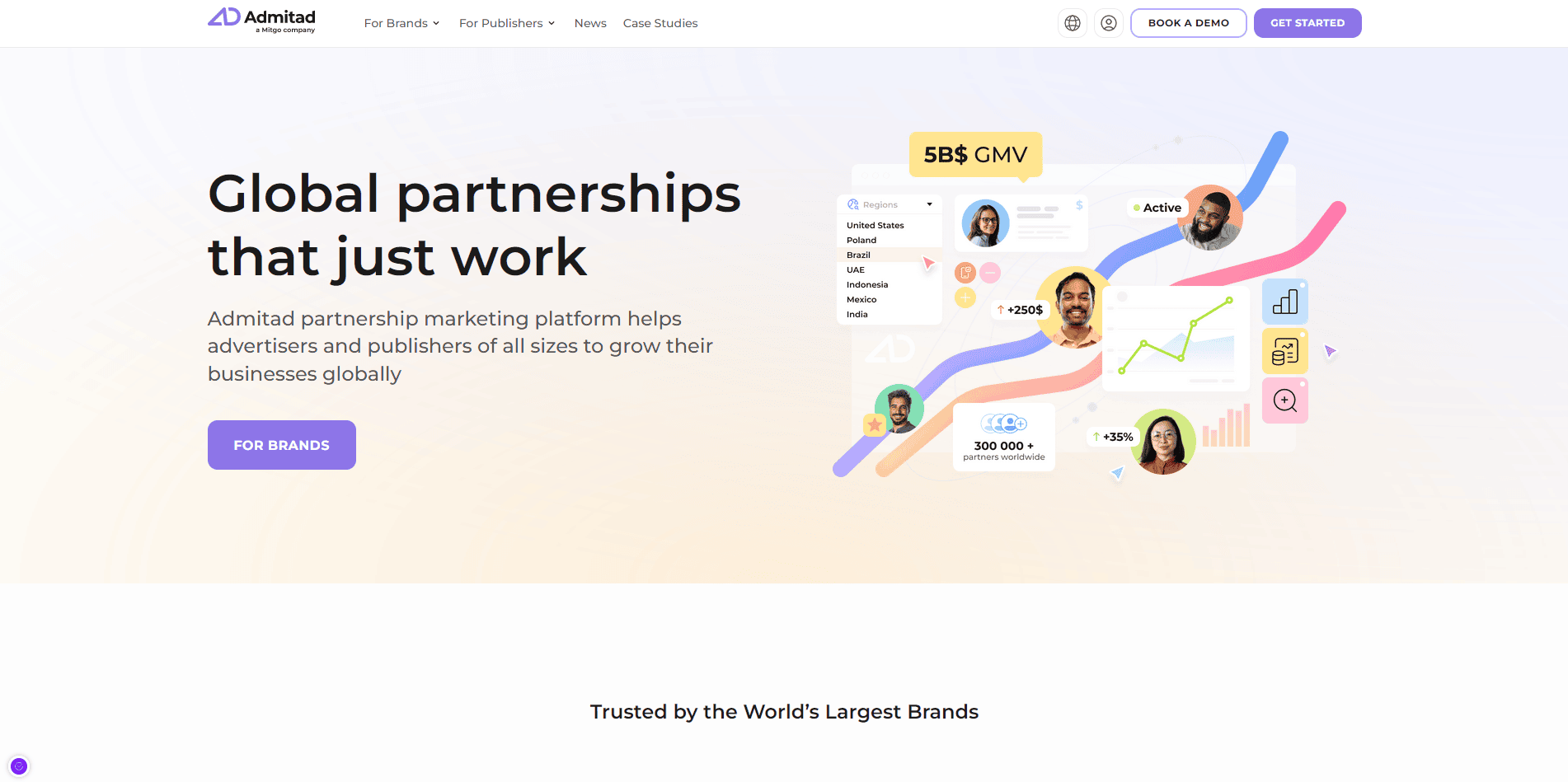
This is a well-established affiliate network that has been around since 2009. Admitad collaborates with thousands of affiliates and sellers globally.
They support their affiliates with training materials and webinars, making it suitable for both beginners and experienced marketers.
However, Admitad is known for its strict policies, which has led to some negative reviews. The platform offers detailed analytics, tracking tools, link generators, and widgets.
Advertise

This is a hybrid affiliate network that combines regular affiliate marketing offers with e-commerce offers. They have around 90 online stores across various categories, offering products ranging from household goods to jewelry.
Grayhat e-commerce affiliate networks
The grayhat side of e-commerce is for affiliate marketers who don't mind promoting products that may differ from what was promised or may not meet expectations. These offers aim to create a "wow" effect. Grayhat e-commerce offers are popular in the Eastern Europe region and are expanding to other geos as well.
M1.top
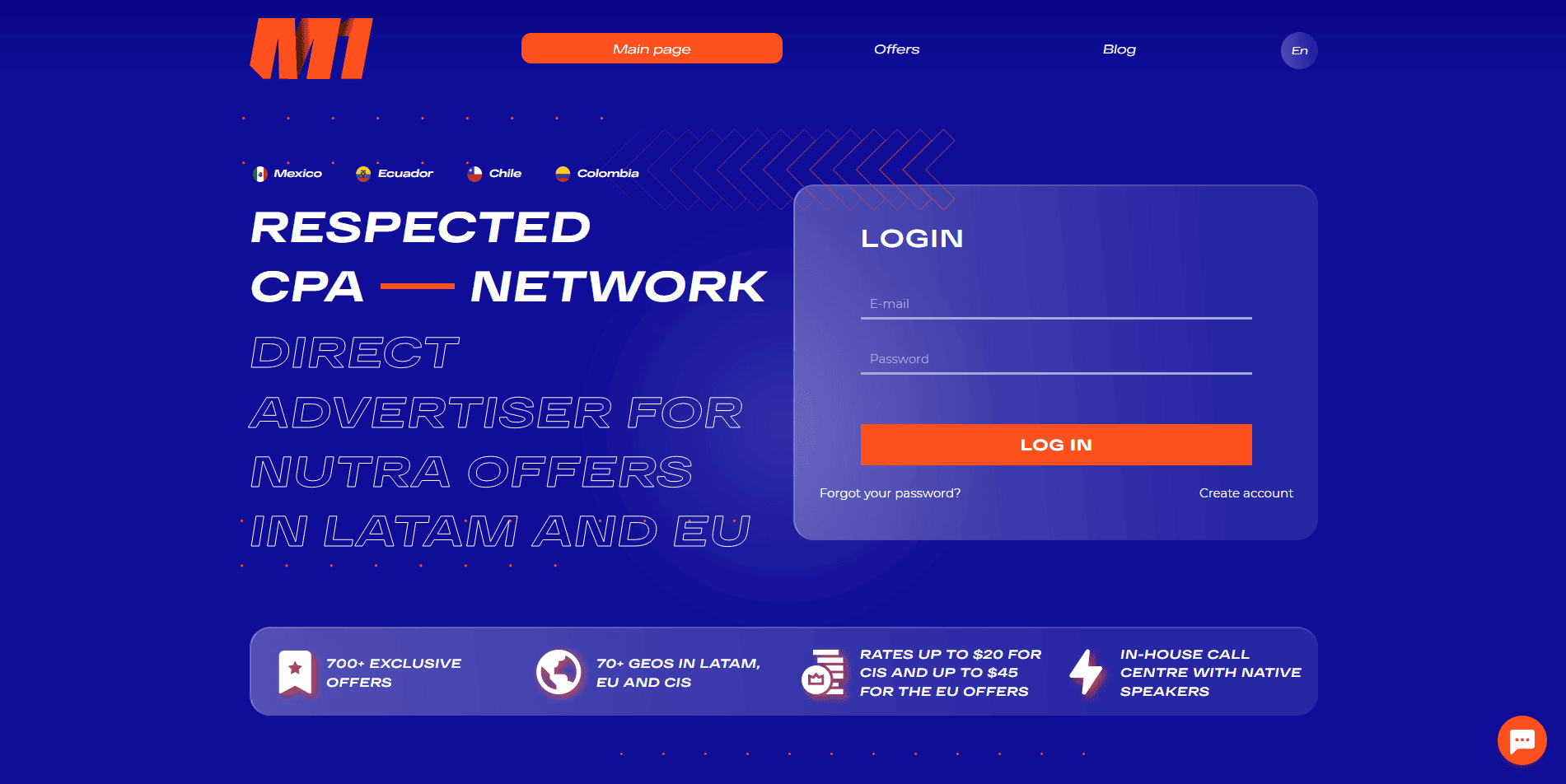
M1.top is a classic e-commerce affiliate network that has been around since the early days of affiliate marketing. M1.top provides webinars and training sessions for new affiliates.
They offer a wide range of offers in various verticals and geos. Notably, they have their own call center, allowing affiliates to request compensation for poorly handled leads.
M1.top provides customizable landing pages, domain parking, a referral program, and detailed multi-level statistics.
KMA.Biz
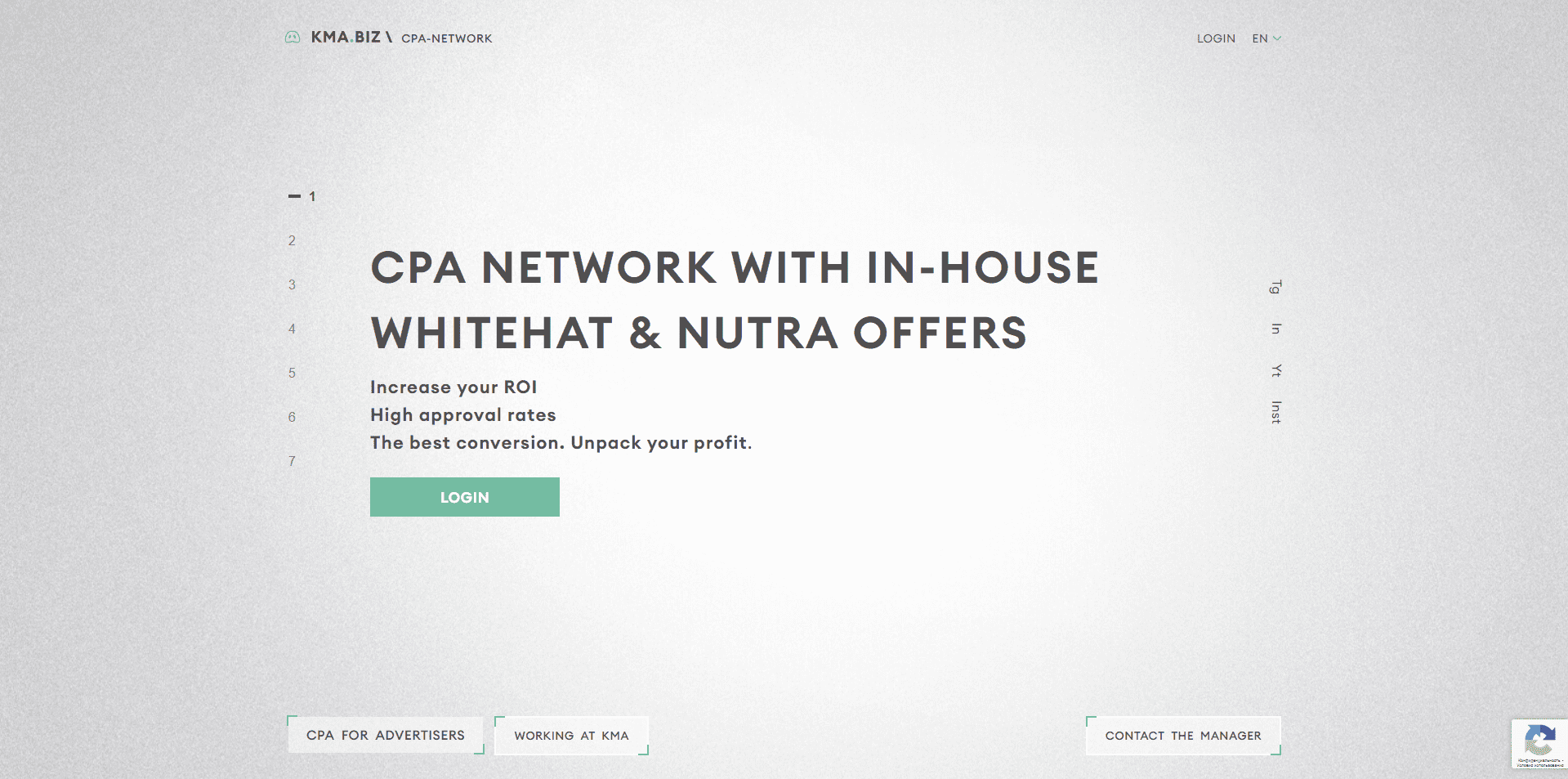
This is one of the oldest e-commerce affiliate networks with a good reputation. They offer over 1000 offers in the nutra and e-commerce verticals, including more than 100 of their own offers.
RocketProfit
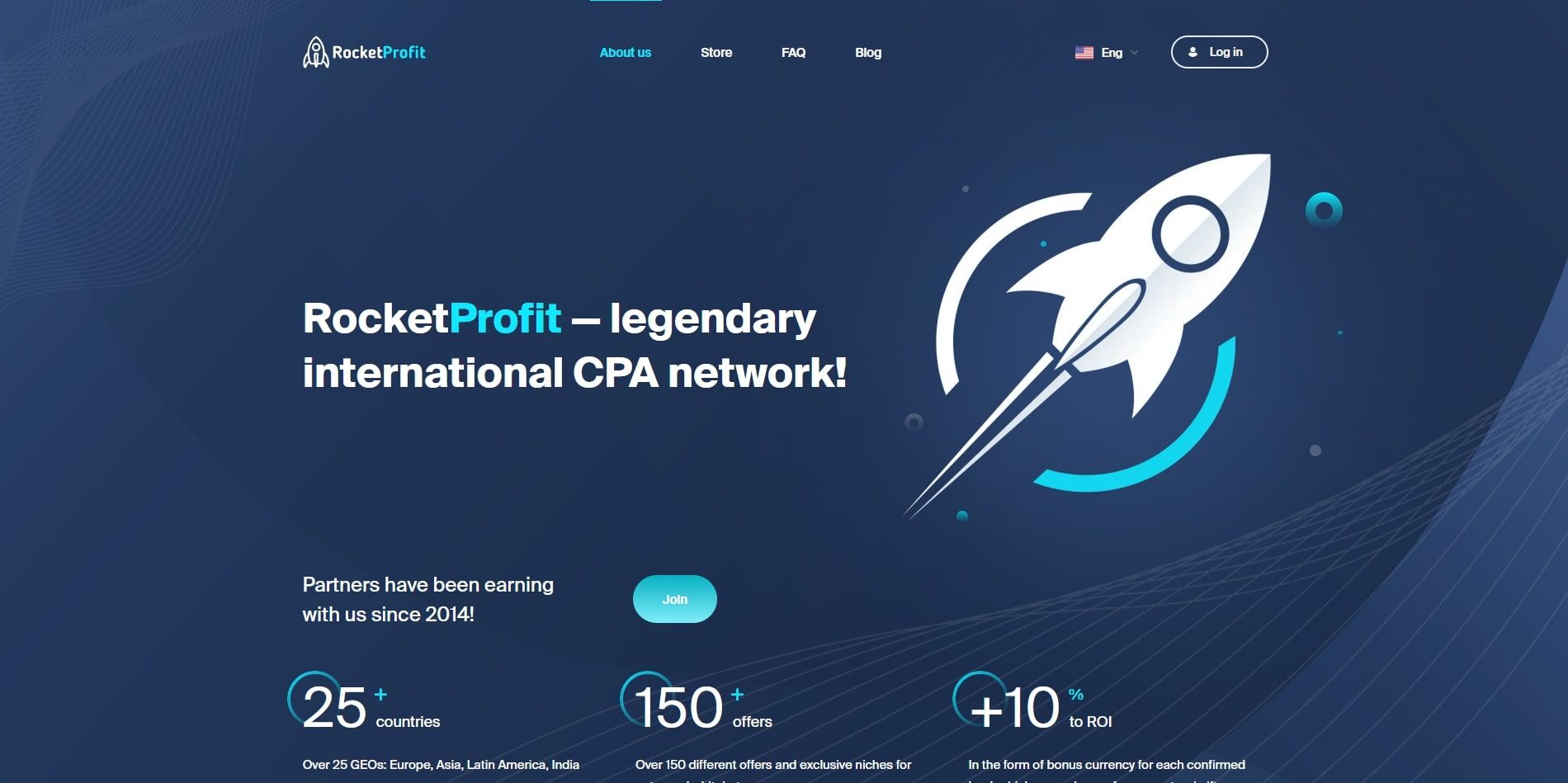
Positioned as an international e-commerce CPA network, RocketProfit provides 150 offers across 25 countries in Europe, Asia, and Latam. The advantages of this affiliate program include daily payments, an approval guarantee, free assistance with promotional materials, and a call center with 1500 employees. They also offer an exclusive loyalty program.
Conclusion
Whitehat e-commerce affiliate programs are a great choice for those who prioritize ethics and the quality of the products they promote. It's a suitable option for those who prefer not to engage in grayhat methods or deal with card restrictions on platforms like Facebook.
Although the profit margins in whitehat verticals may be lower compared to grayhat verticals like gambling, there are promising opportunities in the e-commerce vertical across all geos. However, it's important to note that competition in this vertical is significantly higher, making it more challenging to succeed.








